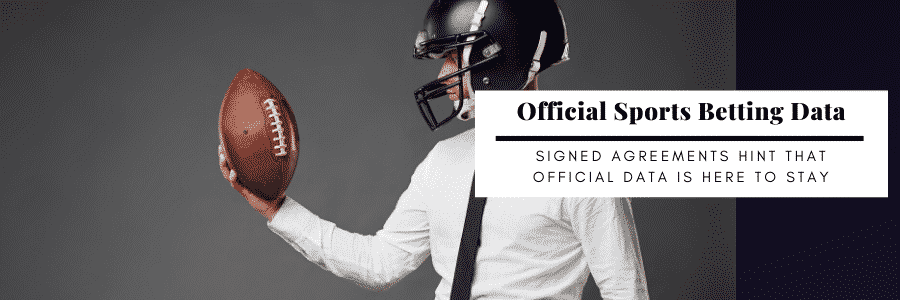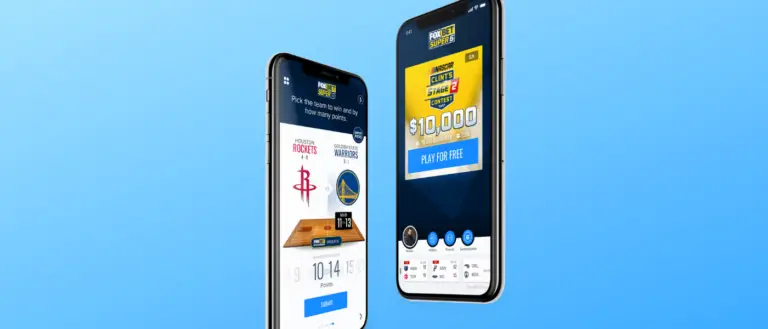Official Data Deals Hint At Sports Future Relationship With Sportsbooks

Historical turning points are a phenomenon that is often only possible to discern long after the event itself. And often, it’s only 20/20 hindsight, which offers the clearest view.
However, when it comes to the ongoing debate with regard to official sports data use in sports-betting, it would be fair to say that it is events in the very recent past – that is, in October – that may come to be seen as representing a decisive turning point.
Ahead of the new football season, the situation concerning official sports data was far from settled. But as the number of deals increases, and as sports betting operators and the professional sports leagues have more readily signed up to long-term agreements, it seems that a point of no return has been reached.
To an extent, this is about seeing the application of a carrot-and-stick approach in real-time. First came the news from Nevada that a number of books found themselves cut off from the official NFL in-game feeds.
ESPN’s David Purdum suggested that some books getting their in-game feeds via third-party service provider Stadium Technology – a part of GVC Group – had seen their feeds turned off.
This came after data provider Sportradar announced an exclusive deal with the NFL for data provision. Following that deal, the company moved to reset its previous arrangements in line with the terms of the new arrangement. The bookies balked – and promptly lost their feeds.
Meanwhile, in New Jersey
Away from Nevada, the story was very different. In the past month alone, there have been three significant operator-league partnerships announced.
First, William Hill announced a long-term deal with the NBA to become an authorized betting partner with the right to use both official data the league marks across all its propositions in regulated states.
The William Hill news was followed by the announcement from The Stars Group that FOX Bet had reached a similar agreement with Major League Baseball (MLB). Then bet365.com said it had put pen to paper over the rights to official MLB data.
Taken together, these deals suggest that the take-up of official data in the US is now a fait accompli; the moment when for many, the internal debate over data came to a stop. There may still be arguments going on about mandated official data – Michigan is the latest state to debate the issue – but in the commercial realm the new landscape is already being set.
“It is the facts on the ground that count,” says Neale Deeley, vice president for gaming sales in the US for Sportradar. “In the US, when it comes to data operators are finding, it is now impossible to sit on the fence. You have to have official data; it is an essential part of the package for any operator with pretensions to succeed in the US.”
“There is definitely some momentum for operators to use official data from the major US sports leagues,” says Marc Thomas, partner at sports-betting and sports data consultancy Propus Partners. “This is contrary to what has historically happened within Europe and the rest of the world.”
An Example Set
The dynamics of taking official data in the US are instructive. As Thomas points out, while mandated data is far from being a given in most states, the desire on the part of both domestic and operators from Europe to be “whiter than white” and sign up for official data has set a precedent.
It means we will be seeing more official data deals in the US. “I think that more operators will come to see official data deals as pretty much the price of market entry,” says Deeley. “The commercial market for data has evolved very quickly, and it is changing perceptions among the operators. It is very different to how the market formed and has developed in Europe.”
Indeed, as Thomas points out, the usage of live data and developments in in-play occurred without any prior knowledge on the part of the various sports and leagues of the industry need. “This means that a mix of official, unofficial, exclusive and non-exclusive data is provided,” he added.
But with the US now as an example, there are suggestions this might all change. “It will be interesting to see whether European suppliers and operators move towards official data provision for their entire businesses going forward,” he says.
Such a move would have wide implications and would suggest a re-setting of the relationship between sport and the bookmakers. But for Deeley, the model for the future in the US is already set.
“I think the recent deals are pointing to what the market will be like across the regulated states,” he said. “Official data will be a necessary piece of the sports-betting puzzle for every operator, with all the commercial opportunities that come with it. That much I think we can say now for sure.”
Scott Longley has been a journalist since the early noughties covering personal finance, sport and the gambling industry. He has worked for a number of publications including Investor’s Week, Bloomberg Money, Football First, EGR and GamblingCompliance.com. He now writes for online and print titles across a wide range of sectors.






